Need a Free Laptop for Deaf and Hard of Hearing? [Find Program & Apply]
In the United States, ensuring equal access to technology is essential for promoting equality among citizens. However, individuals who are deaf or hard of hearing often face challenges due to the lack of accessible technology. According to a report by the National Institute on Deafness and Other Communication Disorders (NIDCD), 3 out of every 1,000 children in the U.S. are born with hearing loss. If we do not support these children, they may face difficulties in communication, social isolation, and limited opportunities in life.
To address this issue, the government has launched a program providing free laptops for deaf and hard of hearing individuals. This initiative partners with reliable providers to ensure that the necessary technology reaches those in need.
These laptops are equipped with special tools to enhance communication, such as real-time captioning, video calls, and messaging apps.
In this post, I will guide you on how to obtain a free government laptop, detailing the top providers, qualification criteria, required documents, and the online application process. Let’s dive in!
It may interest you:How to Get Free Laptop Yojana India? [Eligibility & How to Apply]
- What is a Free Laptop for Deaf and Hard of Hearing Program?
- How to Get a Free Laptop for Deaf and Hard of Hearing
- Government-Sponsored Programs
- Non-Profit Organizations and Charities Providing Free Laptops
- How to Apply for a Free Laptop for Deaf and Hard of Hearing
- Challenges Faced by Deaf and Hard of Hearing Individuals and Solutions
- Frequently Asked Questions
- Final Words and Verdict
What is a Free Laptop for Deaf and Hard of Hearing Program?
This program is a state initiative that provides laptops to individuals with hearing impairments. The laptops come with specialized tools and software designed to aid communication, including speech-to-text and text-to-speech functionalities, video calls, and captioning features.
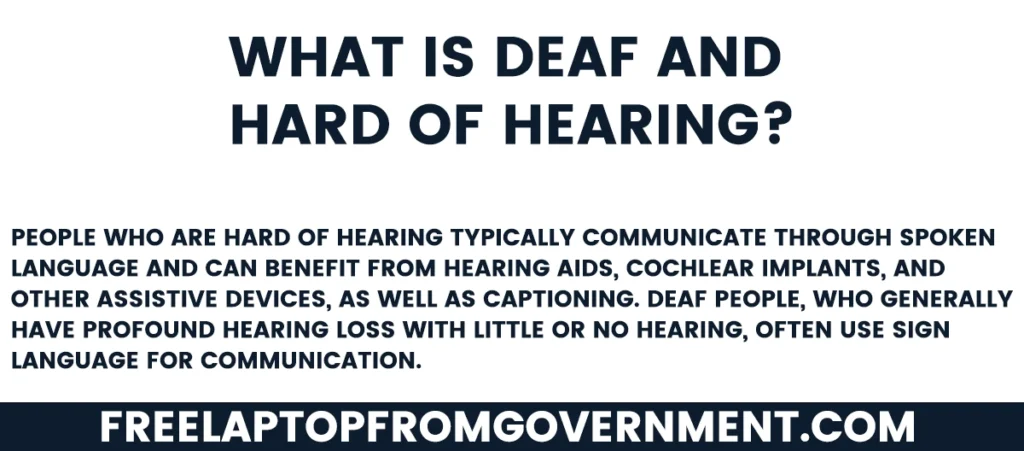
The World Health Organization estimates that by 2050, around 3 billion people will have hearing issues, with about 700 million needing assistance. This highlights the urgent need for every country to take steps to support those with hearing difficulties.
How to Get a Free Laptop for Deaf and Hard of Hearing
Government-sponsored programs are designed to assist those in need. These programs provide free laptops to deaf and hard of hearing individuals, ensuring they can access technology and feel included in society.
Government-Sponsored Programs
- National Association of the Deaf (NAD)
The NAD runs the Deaf Kids Code program, which helps deaf children learn about technology and provides them with laptops. This program not only offers laptops but also educates children on computer use and coding.
To qualify, you need to be a deaf child or teenager interested in technology. The program is available nationwide. Contact: 301-587-1788.
It may interest you:Need a Free Laptop for Low-Income Families? Top 5 Providers in 2025- Texas Health and Human Services (HHS)
The HHS offers the DeafBlind with Multiple Disabilities (DBMD) program, which provides laptops to deaf children to enhance their communication and learning opportunities.
To qualify, children must have a significant disability such as deafness and meet the program’s criteria. This program is only available to Texas residents.
- Collaboration with Non-Profit Organizations
Government agencies often partner with non-profit organizations to implement programs that provide laptops to the deaf. These collaborations ensure that resources are effectively utilized to support more individuals. Examples include programs like Medicaid and EBT/Food Stamps.
Non-Profit Organizations and Charities Providing Free Laptops
1. The National Deaf Children’s Society (NDCS)
The National Deaf Children’s Society (NDCS) provides laptops to deaf children in the United Kingdom to support their education. To be eligible, the child must be deaf or have significant hearing difficulties and require the laptop to enhance their learning experience. These laptops come with specialized software designed for deaf students, including captioning programs, speech-to-text converters, and visual aids.
This program is available across all regions of the UK, ensuring that every eligible child can receive assistance regardless of their location. NDCS collaborates with schools and families to assess each child's specific needs and distributes the laptops accordingly. For more information, contact NDCS at 020 7490 8656.
It may interest you:SNAP Laptop Program: The Definitive Guide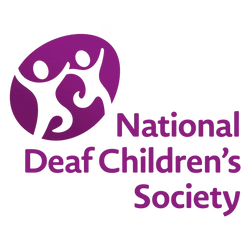
This program is available across the UK and it has its own eligibility criteria. Contact: 020 7490 8656.
2. The American Society for Deaf Children (ASDC)
The American Society for Deaf Children (ASDC) offers a Technology Grant Program to provide laptops to deaf and hard-of-hearing children. This initiative supports kids aged 3 to 21 who attend regular schools and reside in the United States or Canada.
The laptops provided through this program come equipped with special applications designed to facilitate learning for deaf children. This program is available to all eligible families across the United States. If you meet the criteria and live in the U.S. or Canada, you can apply to receive a laptop through this valuable program.
It may interest you:Free Laptops for Students Program 2025 [Online Registration]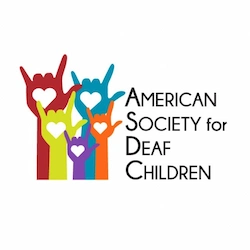
3. Deaf Action Center (DAC)
The Deaf Action Center (DAC) supports the education of deaf children through its free government laptops program. To qualify, applicants generally need to be deaf children or teenagers who require a laptop for their studies. Recently, DAC has also started a program for senior citizens.
Operating in over 40 states across the United States, DAC not only provides laptops but also offers training on how to use them effectively. For more information, call 214.521.0407.
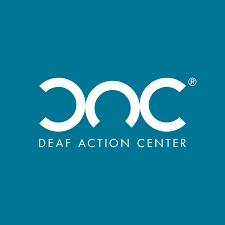
4. The Hearing Loss Association of America (HLAA)
The Hearing Loss Association of America (HLAA) offers laptops to hard-of-hearing children through its Laptops for Kids program. To participate, children typically need to have hearing impairments and require specialized technology to aid in their learning and communication.
This initiative operates in more than 40 states across the United States. HLAA collaborates with local organizations and sponsors to support this worthy cause. The laptops provided come equipped with special software and features designed to assist deaf and hard-of-hearing students.

5. Deaf Child Worldwide
Deaf Child Worldwide helps deaf children in developing countries by providing them with laptops through family events. To qualify, children typically need to be deaf, come from low-income families, and submit relevant documentation. Additionally, they must reside in one of the 30 countries where the organization operates, such as India, Kenya, and Bangladesh.
The laptops are equipped with specialized software and tools that assist deaf children in learning sign language, accessing educational materials, and improving communication. Deaf Child Worldwide also offers training for both the children and their families on how to effectively use the laptops, ensuring they maximize the benefits.
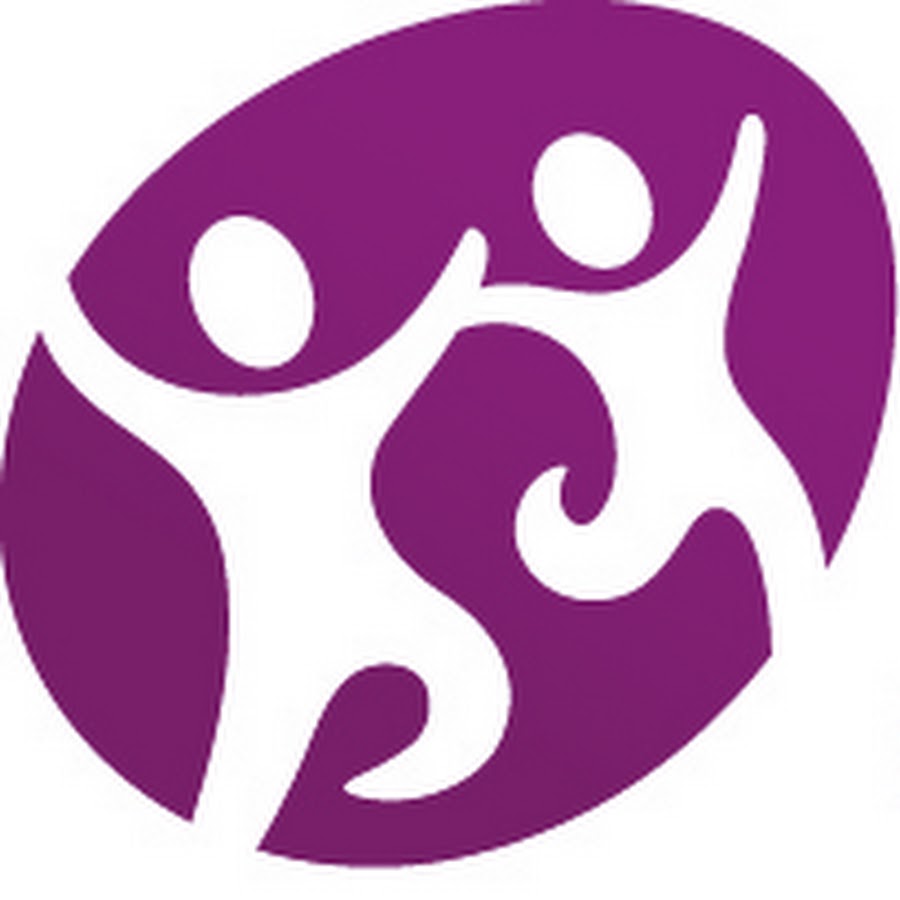
6. Hear Indiana
Hear Indiana offers laptops through their Hear to Learn program, which includes tools such as speech-to-text converters, sign language learning applications, and other educational features.
To be eligible for this program, children typically need to have hearing loss and require a laptop for school purposes. While Hear Indiana primarily operates within Indiana, they may also assist children in nearby areas when possible. To make an appointment or learn more, call 317-828-0211.

7. Local Community Organizations
Many local organizations and charities also offer programs providing laptops or assistive technology to the deaf and hard of hearing. These groups often collaborate with government bodies and other stakeholders to meet the needs of their communities.
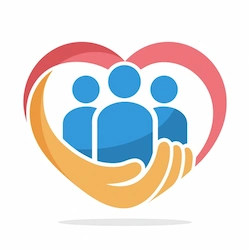
How to Apply for a Free Laptop for Deaf and Hard of Hearing
Step 1: Research Eligibility Criteria
Before applying, research the eligibility criteria for programs offering free laptops to disabled individuals. Understanding these requirements ensures a smoother application process.
Step 2: Gather Necessary Documentation
Collect all required documents, including proof of disability, income, and identification. Having these documents ready ensures a complete application.
Step 3: Identify Suitable Programs or Organizations
Identify and research programs or organizations offering free laptops. Determine which ones best meet your needs.
Step 4: Complete Application Form
Fill out the application form accurately and completely, including all personal details and supporting documentation.
Step 5: Submit Supporting Documents
Submit all necessary documents along with your application. Ensure that the information is current and accurate.
Step 6: Wait for Review and Approval
Wait for the program to review your application. Be patient and follow up if needed.
Step 7: Receive Notification
You will be notified if your application is approved or denied. If approved, follow the instructions to receive your laptop.
Step 8: Receive and Set Up Your Laptop
Follow the provided instructions to receive and set up your laptop. Ensure it meets your accessibility needs.
Step 9: Utilize Support Services
Many programs offer additional support services such as training on assistive technology. Take advantage of these resources.
Step 10: Provide Feedback and Stay Engaged
Consider providing feedback to improve the program. Stay engaged with the community to remain informed about updates and support.
Challenges Faced by Deaf and Hard of Hearing Individuals and Solutions
Challenges:
- Communication Barriers: People who are deaf or hard of hearing often struggle with effective communication, particularly in environments where spoken language is predominant. This can lead to feelings of loneliness, misunderstanding, and difficulty in accessing vital information.
- Educational Barriers: Deaf and hard of hearing students frequently face challenges in obtaining necessary educational materials and fully participating in classroom activities due to a lack of appropriate accommodations and technology. According to the National Deaf Center’s Report, only 51% of deaf and hard of hearing students pursue higher education.
- Employment Discrimination: Despite the availability of workplace accommodations, deaf and hard of hearing individuals still encounter significant hurdles in securing employment. This is often due to misconceptions about their abilities and a lack of communication tools. The University of Texas reports that only 54% of hard of hearing individuals are employed.
- Social Isolation: Communication difficulties can lead to social isolation for deaf and hard of hearing people, making it challenging for them to engage in conversations and participate in social activities, thus feeling excluded.
- Limited Access to Information: Regular information channels, such as phone calls or audio broadcasts, are often inaccessible to deaf and hard of hearing individuals, resulting in them missing out on important news and events.
Solutions:
- Accessibility Features: Laptops provided through these programs include speech-to-text, real-time captioning, and video relay services.
- Educational Support: These laptops help students access educational materials and communicate effectively in school.
- Employment Opportunities: The right technology enables better job opportunities and training.
- Social Inclusion: Laptops with internet access help individuals stay connected and reduce feelings of isolation.
- Information Access: Enhanced access to information through the internet and specialized software.
Frequently Asked Questions
Final Words and Verdict
Providing free laptops to the deaf and hard of hearing community is a significant step towards enhancing their communication, education, and employment opportunities. These programs, whether run by the government, non-profits, or charities, are vital for ensuring everyone can access and benefit from technology.
My opinion is that these programs are incredibly valuable for promoting inclusion and helping individuals thrive in their daily lives.
